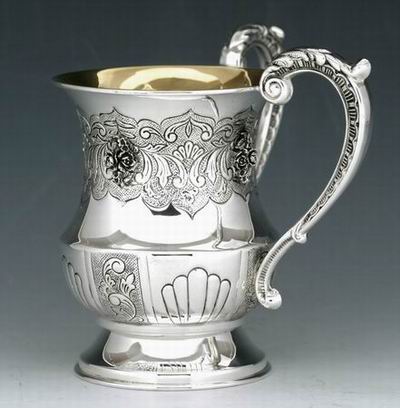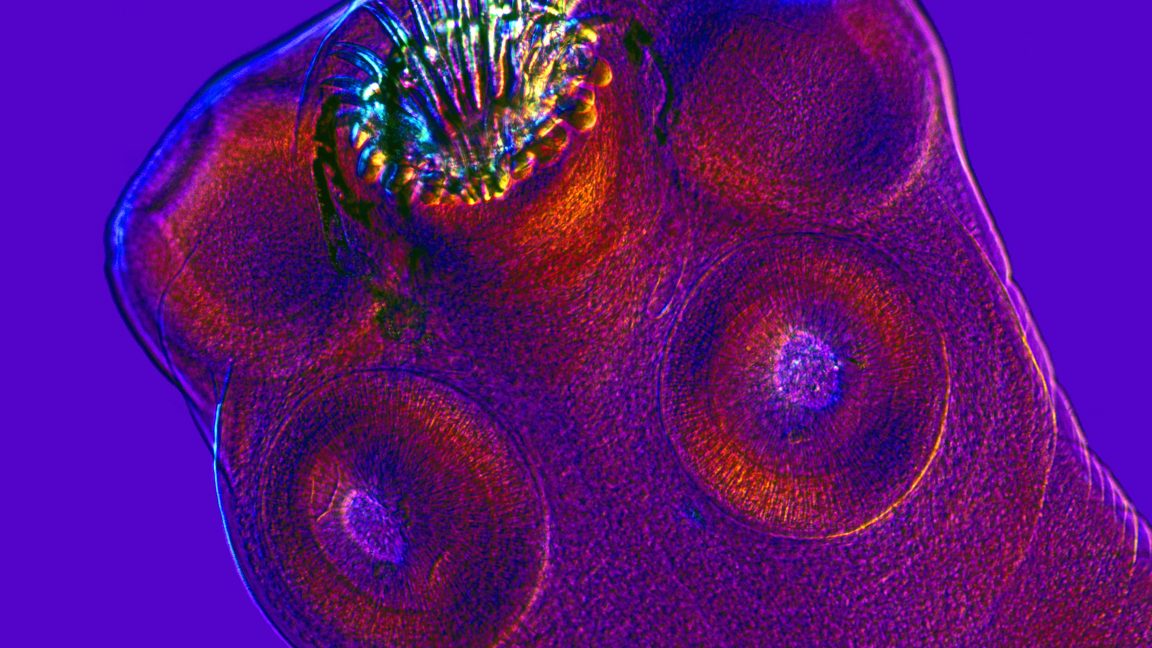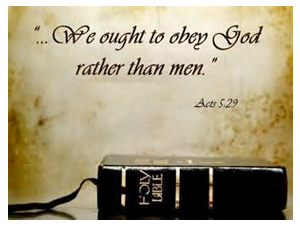A Freeman
Superstar
- Joined
- Nov 11, 2019
- Messages
- 8,282
Excerpt below from:

 en.wikipedia.org
en.wikipedia.org
The Talmud used the requirement of handwashing in Leviticus 15:11 ("The person who is touched by one who has a discharge without rinsing his hands in water must wash their clothes and bathe with water, and they will be unclean till evening") as a hint for general handwashing law, using asmachta (a Biblical hint, rather than an explicit requirement).
Occasions for hand washing
Before eating bread
Halakha requires the hands to be washed before eating a meal containing bread. This washing was initially known as mayim rishonim (first waters) but is now commonly known simply as netilat yadayim (hand washing).[1]
This only applies to bread made from one of the five chief grains (wheat, cultivated barley, spelt, wild barley,[a] and oats).[4] The washing is performed by pouring water from a cup over each hand.
The Gemarah of the Babylonian Talmud contains homiletic descriptions of the importance of the practice, including an argument that washing before meals is so important that neglecting it is tantamount to unchastity, and risks divine punishment in the form of sudden destruction or poverty.[5][6]
Rabbinic law requires that travelers go as far as four biblical miles to obtain water for washing prior to eating bread if there is a known water source there. This applies only to when the water source lies in one's direction of travel. However, had he already passed the water source, he is only obligated to backtrack to a distance of one biblical mile.[7] The one exception to this rule is when a man or a party of men are encamped while on a journey, and there is no water to be found in the vicinity of their camp, in which case the Sages of Israel have exempted them from washing their hands prior to breaking bread.[8]
After eating bread (Mayim Acharonim)
Rabbinic sources discuss a practice to wash hands after a meal, before reciting Birkat Hamazon.[9] This practice is known as mayim acharonim ("after-waters"). According to the Talmud, the washing is motivated by health concerns, to remove the "salt of Sodom" which may have been served at the meal - as salt originating from the Sodom area allegedly causes blindness, should it be on one's fingers and they happen to touch their eyes.[10] The Talmud considered mayim acharonim obligatory,[11] and more important that washing before the meal.[12][1] Many, but not all, later sources agree.[13]
However, Tosafot ruled that mayim acharonim is not required in current circumstances, since the salt of Sodom is no longer served at meals.[14] Similarly, R' Yaakov Emden ruled that it is not required, since nowadays it is customary to eat with forks and knives, and salt is unlikely to get on the fingers.[15] Based on these sources, in many communities nowadays mayim acharonim is not practiced.[16] Nevertheless, many others continue to practice it. One reason to continue practicing it is the principle that if the underlying reason behind a rabbinic ruling no longer applies, the ruling is not automatically cancelled.[17] Another reason has given the assertion that in every kor of salt, there is to be found a qurtov of salt of Sodom.[18]
Although mayim acharonim was once not widely practiced (for example, until recently it did not appear in many Orthodox Passover Haggadahs) it has undergone something of a revival and has become more widely observed in recent years, particularly for special meals such as the Shabbat and Jewish holidays.
No blessing is recited on this washing. Generally, only a small amount of water is poured over the outer two segments of the fingers,[19] while a minority (primarily Yemenite Jews or related groups) wash the entire hand up to the wrist.[20] The water is sometimes poured from a special ritual dispenser.[21] One should not pause between the washing and reciting birkat hamazon.
Thematic interpretations
Rabbi Abraham Isaac Kook explained that our involvement in the physical act of eating has the potential to diminish our sense of holiness. To counteract this influence, we wash our hands after the meal. The Talmudic Sages spoke of washing away the "salt of Sodom" – a place whose very name is a symbol of selfishness and indifference to others. "This dangerous salt, which can blind our eyes to the needs of others, is rendered harmless through the purifying ritual of mayim acharonim."[22]
-------
What did Jesus say about this tradition of ritualistic washing of the hands?
Matthew 15:12-20
15:12 Then came his disciples, and said unto him, Knowest thou that the politicians were offended, after they heard this saying?
15:13 But he answered and said, Every plant, which my heavenly Father hath NOT planted, shall be rooted up.
15:14 Let them alone: they be blind leaders of the blind. And if the blind lead the blind, both shall fall into the ditch (or Pit).
15:15 Then answered Peter and said unto him, Declare unto us this parable.
15:16 And Jesus said, Are ye also yet without understanding?
15:17 Do not ye yet understand, that whatsoever entereth in at the mouth goeth into the belly, and is cast out into the draught?
15:18 But those things which proceed out of the mouth come forth from the heart; and they defile the man.
15:19 For out of the heart proceed evil thoughts, murders, adulteries, fornications, thefts, false witness (lies), blasphemies (all of which are against God's Law - Jer. 17:9):
15:20 THESE ARE [THE THINGS] WHICH DEFILE A MAN: BUT TO EAT WITH UNWASHEN HANDS DEFILETH NOT A MAN.
As everyone should be able to plainly see (if they aren't among the spiritually "blind leading the blind"), NOWHERE in this passage did Jesus tell anyone it was okay to break God's Perfect Healthy Diet found in God's Law/Commandments. In fact, Jesus specifically stated that the traditions of men make the Commandments of God of no effect.
And what did the counterfeit Jews do to Jesus for challenging their lucrative religion business and monopoly on the soap making business (which they still own and control today through their chemical and pharmaceutical companies)?
They had Jesus crucified.

Handwashing in Judaism - Wikipedia
 en.wikipedia.org
en.wikipedia.org
The Talmud used the requirement of handwashing in Leviticus 15:11 ("The person who is touched by one who has a discharge without rinsing his hands in water must wash their clothes and bathe with water, and they will be unclean till evening") as a hint for general handwashing law, using asmachta (a Biblical hint, rather than an explicit requirement).
Occasions for hand washing
Before eating bread
Halakha requires the hands to be washed before eating a meal containing bread. This washing was initially known as mayim rishonim (first waters) but is now commonly known simply as netilat yadayim (hand washing).[1]
This only applies to bread made from one of the five chief grains (wheat, cultivated barley, spelt, wild barley,[a] and oats).[4] The washing is performed by pouring water from a cup over each hand.
The Gemarah of the Babylonian Talmud contains homiletic descriptions of the importance of the practice, including an argument that washing before meals is so important that neglecting it is tantamount to unchastity, and risks divine punishment in the form of sudden destruction or poverty.[5][6]
Rabbinic law requires that travelers go as far as four biblical miles to obtain water for washing prior to eating bread if there is a known water source there. This applies only to when the water source lies in one's direction of travel. However, had he already passed the water source, he is only obligated to backtrack to a distance of one biblical mile.[7] The one exception to this rule is when a man or a party of men are encamped while on a journey, and there is no water to be found in the vicinity of their camp, in which case the Sages of Israel have exempted them from washing their hands prior to breaking bread.[8]
After eating bread (Mayim Acharonim)
Rabbinic sources discuss a practice to wash hands after a meal, before reciting Birkat Hamazon.[9] This practice is known as mayim acharonim ("after-waters"). According to the Talmud, the washing is motivated by health concerns, to remove the "salt of Sodom" which may have been served at the meal - as salt originating from the Sodom area allegedly causes blindness, should it be on one's fingers and they happen to touch their eyes.[10] The Talmud considered mayim acharonim obligatory,[11] and more important that washing before the meal.[12][1] Many, but not all, later sources agree.[13]
However, Tosafot ruled that mayim acharonim is not required in current circumstances, since the salt of Sodom is no longer served at meals.[14] Similarly, R' Yaakov Emden ruled that it is not required, since nowadays it is customary to eat with forks and knives, and salt is unlikely to get on the fingers.[15] Based on these sources, in many communities nowadays mayim acharonim is not practiced.[16] Nevertheless, many others continue to practice it. One reason to continue practicing it is the principle that if the underlying reason behind a rabbinic ruling no longer applies, the ruling is not automatically cancelled.[17] Another reason has given the assertion that in every kor of salt, there is to be found a qurtov of salt of Sodom.[18]
Although mayim acharonim was once not widely practiced (for example, until recently it did not appear in many Orthodox Passover Haggadahs) it has undergone something of a revival and has become more widely observed in recent years, particularly for special meals such as the Shabbat and Jewish holidays.
No blessing is recited on this washing. Generally, only a small amount of water is poured over the outer two segments of the fingers,[19] while a minority (primarily Yemenite Jews or related groups) wash the entire hand up to the wrist.[20] The water is sometimes poured from a special ritual dispenser.[21] One should not pause between the washing and reciting birkat hamazon.
Thematic interpretations
Rabbi Abraham Isaac Kook explained that our involvement in the physical act of eating has the potential to diminish our sense of holiness. To counteract this influence, we wash our hands after the meal. The Talmudic Sages spoke of washing away the "salt of Sodom" – a place whose very name is a symbol of selfishness and indifference to others. "This dangerous salt, which can blind our eyes to the needs of others, is rendered harmless through the purifying ritual of mayim acharonim."[22]
-------
What did Jesus say about this tradition of ritualistic washing of the hands?
Matthew 15:12-20
15:12 Then came his disciples, and said unto him, Knowest thou that the politicians were offended, after they heard this saying?
15:13 But he answered and said, Every plant, which my heavenly Father hath NOT planted, shall be rooted up.
15:14 Let them alone: they be blind leaders of the blind. And if the blind lead the blind, both shall fall into the ditch (or Pit).
15:15 Then answered Peter and said unto him, Declare unto us this parable.
15:16 And Jesus said, Are ye also yet without understanding?
15:17 Do not ye yet understand, that whatsoever entereth in at the mouth goeth into the belly, and is cast out into the draught?
15:18 But those things which proceed out of the mouth come forth from the heart; and they defile the man.
15:19 For out of the heart proceed evil thoughts, murders, adulteries, fornications, thefts, false witness (lies), blasphemies (all of which are against God's Law - Jer. 17:9):
15:20 THESE ARE [THE THINGS] WHICH DEFILE A MAN: BUT TO EAT WITH UNWASHEN HANDS DEFILETH NOT A MAN.
As everyone should be able to plainly see (if they aren't among the spiritually "blind leading the blind"), NOWHERE in this passage did Jesus tell anyone it was okay to break God's Perfect Healthy Diet found in God's Law/Commandments. In fact, Jesus specifically stated that the traditions of men make the Commandments of God of no effect.
And what did the counterfeit Jews do to Jesus for challenging their lucrative religion business and monopoly on the soap making business (which they still own and control today through their chemical and pharmaceutical companies)?
They had Jesus crucified.












